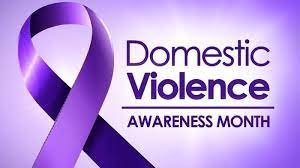The Candidates for the 47th Presidency of the United States featured Republican Donald Trump versus Democrat Kamala Harris. At the start of the campaign Trump was interviewed by a group of Black women and claimed Kamala Harris didn't really view herself as Black until she decided to run for president. He suggested that she viewed herself as Indian, in spite of the fact that she attended an HBCU and was a member of a Black sorority. It was clear that this was an effort to separate her from Black people and the African American vote. This is a trick as old as the Willie Lynch letter.
During the period of Chattel slavery in the U.S., enslaved Africans were revolting and supposedly, White slave holders sought council from Willie Lynch on how to control the enslaved Africans. Willie Lynch advised, Make a list of their differences and then exaggerate those differences. Some are lighter, some are darker, some are old and some are young, some are men and some are women, some work in the house and others in the field....pit them against each other based upon those differences and they will be so busy fighting each other that they will never rebel against you.
Early in the campaign Trump also talked about evidence of cheating which created traumatic flashbacks of the last time he complained of cheating during and after he lost an election. It was January 6th 2020 and his phantom complaint of voter fraud triggered the takeover of the U.S. Capital building where we witnessed a White male walk through the building carrying a Confederate flag, a traumatizing symbol of the time African Americans were enslaved.
Trump defeated Harris and will be inaugurated as the 47th President of the United States. He will enter office with the republicans controlling both branches of congress and the Supreme Court, with six of the nine justices being republican nominated.
One of the 6 Principles of SAMSHA's dimensions of trauma informed care in behavioral health is Predictability and Transparency. Immediately after Trumps victory, I started hearing from African American behavioral health specialists. Below are some statements I heard from colleagues.
“Trump is so unpredictable. With his control of every branch of the government. I bet he would try to vote us back into slavery if he could.”
“Donald Trump has hated Black people for a long time. As a property owner, years before running for President he discriminated against Blacks in housing. Like a slave master he called for the lynching of the Central Park 5, even when it was clear they were innocent of rape.”
“We can expect to see an increase in police brutality under Trump and mass incarceration. As the 13th amendment said, no man can enslave another, unless he is incarcerated.”
“I have had to put my trauma on the shelf and hold space for my Black clients who are also traumatized by the election results.’
‘Our programs are already underfunded. Trump will assure we lose even more funding.’
It is clear from the above comments, Donald Trump's victory has reignited historical trauma for African Americans. I also started receiving emails and phone calls from Latino/Hispanic, Native American and Asian colleagues who shard fear and similar stories of historical re-traumatization.
I have been reflecting since election about our post traumatic growth as African Americans having endured slavery, the reconstruction era, Jim Crow Laws, lynchings, riots, mass incarceration, policy brutality and modern discrimination. I concluded that if we thrived in the midst of all of those traumas, we will handle this too! My colleagues from other communities of color expressed a similar sentiment.















